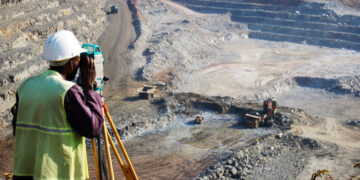Europe demands Nigerian gas, infrastructure stalls supply
As the war between Russia and Ukraine rages on, the European Union (EU) is turning its attention to Nigeria and other African energy giants with abundant reserves for alternative energy sources, but experts say the continent’s energy infrastructure may be a major stumbling block.
For decades, Russia has been the major supplier of gas to the rest of Europe, however, as the recent conflict continues in Ukraine, European gas prices have soared and there is the likelihood that Moscow could shut off supplies of gas, widely considered part of President Vladimir Putin’s leverage against the West in his obsession with Ukraine.
For instance, Russia’s latest demand that customers pay for its gas in the Russian rouble or risk gas cut-offs as early as May 2022 is creating an unusual panic for the economic union of 27 member states that are located primarily in Europe.
Even before the invasion of Ukraine, the dominant position held by Gazprom, the Russia-owned energy giant, generated uncertainty. The company’s decision to stop offering gas on the daily spot market — which refers to one-off deals rather than gas delivered under term contracts — in the fourth quarter of last year helped push up prices by more than 100 percent.
To avoid self-inflicting punishments to its economies, the EU is deliberating medium- and long-term solutions with African countries to replace the average 380 million cubic metres per day of Liquefied Natural Gas (LNG) from Russia. This amounts to 140 billion cubic metres or 45 percent of almost the EU’s total gas consumption a year.
Tim McPhie, European Commission spokesman, confirmed meetings in Brussels with several African energy delegations. “When it comes to finding alternative gas suppliers, the EU is in discussion with a very wide range of potential exporters — including a number of countries in Africa,” McPhie told CNBC.
“The EU has a clear objective to diversify our gas suppliers in the short term while retaining our focus on boosting renewables and phasing out fossil fuels to meet our climate goals,” the spokesperson said. “At present, (liquefied natural gas) offers the fastest option to diversify our gas supplies.”
With over 200 trillion cubic feet (tcf) of natural gas reserves, Nigeria is also well positioned to help meet Europe’s energy needs. According to the African Energy Chamber, the country is set to see supply growth up until 2025, driven by existing producing projects and new developments.
Read: Soaring petrol prices send US inflation to 40-year high
“The EU is interested in strengthening its cooperation with Nigeria, particularly in the area of a possible increase in the supplies of Liquefied Natural Gas,” Samuela Isopi, the EU Ambassador in Nigeria said when the ambassadors from the bloc paid a courtesy call on the management of the Nigerian National Petroleum Company Limited in Abuja.
Gbenga Komolafe, chief executive officer of the Nigerian Upstream Regulatory Commission, said the situation had presented a huge opportunity for Nigeria to occupy the marketplace in terms of gas supply.
“We are currently reviewing the field development plans by operators at the moment to ensure that more gas is produced to Nigerian gas fields,” Komolafe told Arise TV.
He added, “We are also supporting UTM Offshore Limited by encouraging the local investor to get the development of Nigeria’s first Floating Liquefied Natural Gas (FLNG) project completed, which will add an additional 2.2 million tonnes of gas per annum to the market. NLNG also has more capacity to put more gas in the market.”
The UTM’s project is based on an FLNG vessel at OML 104, which holds the Yoho field. The operator of OML 104 is Mobil Producing Nigeria with 40 percent. NNPC owns the remaining equity.
The FLNG plan would have 1.2 million tonnes per year of capacity, processing 176 million cubic feet per day of gas and condensate.
Beyond Nigeria, the EU is also building energy bridges with Egypt, as it is not only a gateway and source of regular energy but also includes new and renewable energy sources.
On April 10, Frans Timmermans, executive vice president of the EU, said the prospects for cooperation and partnership between the EU and Egypt were limitless, and that they had great opportunities for expansion and development. He said the partnership would have an economic return for the Mediterranean countries.
Egypt, with over 77 tcf of gas reserves, has become a net exporter of LNG owing to major projects coming online such as the 2.7-billion-cubic-feet-per-day Zohr gas field. This is also expected to increase as two additional wells are anticipated to start producing in 2022.
“Egypt could turn into a global centre for renewable energy,” he added.
In the long-term, other experts say Africa can ramp up production and exports, with North Africa well positioned.
Algeria, for example, saw an increase in LNG exports to Europe from 40 billion cubic metres (bcm) in 2020 to 53 bcm in 2021. This is expected to rise even further in 2022.
“I used to beg for them to take my calls,” Nj Ayuk, executive chairman of the African Energy Chamber, told the Washington Post. But with oil price volatility shaking global markets amid Russia’s invasion of Ukraine and fears of fuel shortages, European nations are looking more closely at Africa’s abundant natural gas as a potential new source of energy, he said.
“Right now, I think they have me on speed dial,” Ayuk said.
Other experts say new and existing pipelines between key gas fields in the west and north Africa will be fundamental for Europe’s energy future.
These include the trans-Saharan gas pipeline linking Nigeria with Europe, the Maghreb-Europe gas pipeline linking Algeria with Spain, the Medgaz pipeline linking Algeria and Spain, and the Greenstream pipeline linking Libya with Italy.
“These pipelines, among other capital-intensive gas projects across the continent, require significant investment commitments, and Europe needs to step up in this regard,” Khadi Camara, from the German-African Business Association, told DW.








